On June 8-9, 2018 within the framework of the intense implementation of internationalization at PSU the International Office of Polotsk State University invited a group of students and lecturers at the Faculty of Humanities from the University of Amsterdam (UvA). Our Dutch guests visited the university campus in Polotsk, got acquainted with famous Polotsk sights and talked to their colleagues from the Faculty of Humanities at PSU.
The University of Amsterdam is one of the oldest higher education establishments in the Netherlands. The University with a long and rich history dating from 1632, six Nobel laureates keeps its leading positions in the higher education of the Netherlands. The University has seven faculties: Faculty of Humanities, the Faculty of Social and Behavioural Sciences, the Faculty of Economics and Business, the Faculty of Law, The Science, the Faculty of Medicine and the Faculty of Dentistry. The University trains more than 30000 students and has more than 6000 employees.
The University of Amsterdam is not only the largest HEI in the Netherlands, but also one of European’s most prominent research-led universities. It shows high scores in many European and World rankings (57th according to QS World University Rankings and 59th in Times Higher Education World University Rankings). The University offers a wide range of Bachelor’s and Master’s programmes in English and trains more than 5000 international students.
The further development of the university internationalization leads to the intensive usage of various ways of intercultural communication between Dutch students, their lecturers with students and colleagues all over the world. Such an approach and S. Piashkun’s efforts, the head of the International Office at PSU, made this visit to Polotsk possible. PSU is the only university in our country and one of the places of their big tour that involves many universities in Belarus and Ukraine.
The guests started to get acquainted with Polotsk and its university in a cosy disco room of the university. Dutch and Belarusian students, studying Philology, History, Tourism and Hospitality, Psychology, were divided into 6 teams.
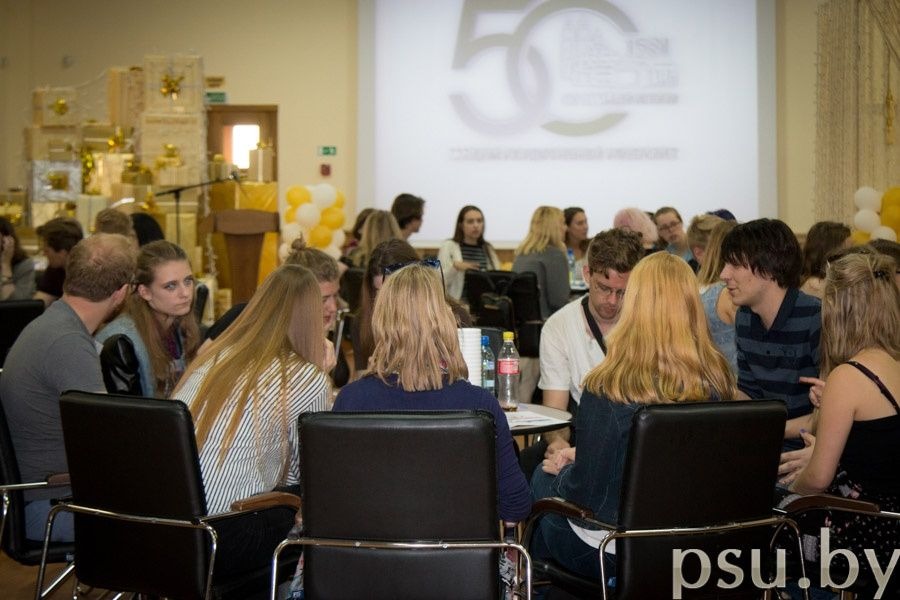
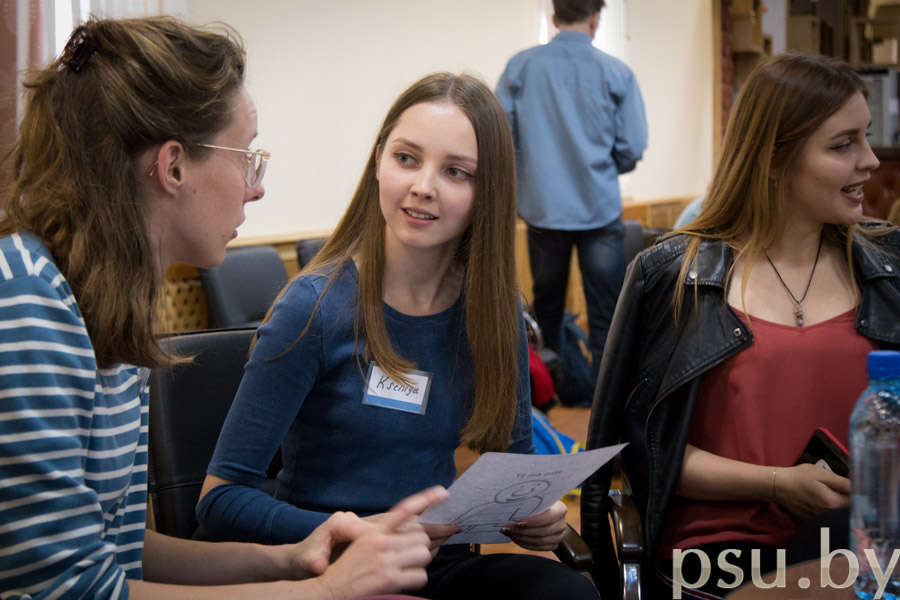
S. Piashkun opened the event with his presentation where he told our Dutch guests about rich history of the ancient city and traditions of higher education in Polotsk, also about modern PSU. After the presentation S. Piashkun gave the teams one more creative task. Each team had to deliver a presentation «We have met in Polotsk».
Our Dutch guests and their Belarusian colleagues shared their interests and hobbies, their personal goals, told about themselves. Then the discussion was mostly focused on peculiarities of higher education in the Netherlands and Belarus, on history, economy, culture and sport of two countries.
The communication between Belarusian and Dutch guests was continued during the excursion around Polotsk and the university campus. The tour was carried out by the Tourist Information Centre and lecturers at the Faculty of Humanities. All the guests had a great chance to know about the past of the city and the university, and probably, to understand modern Belarus better.

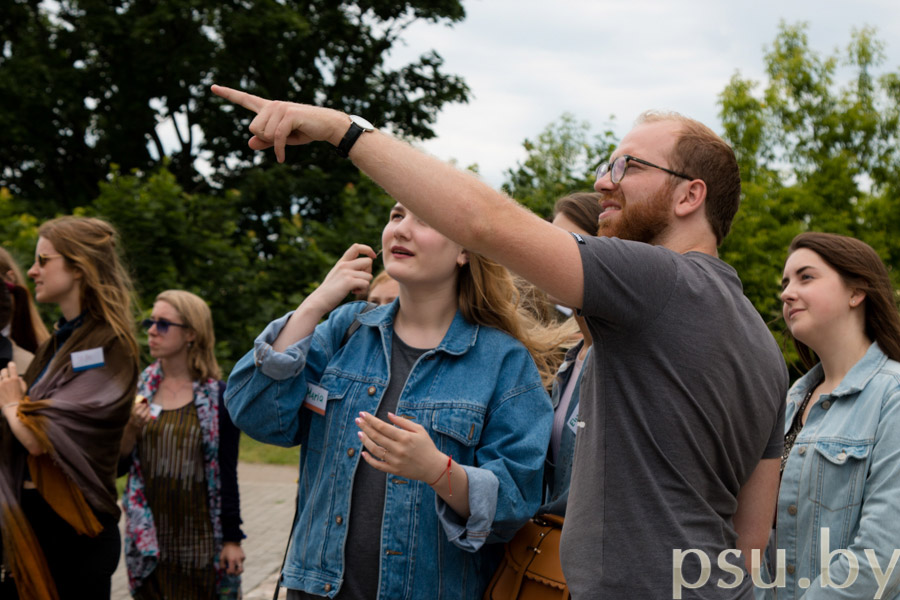
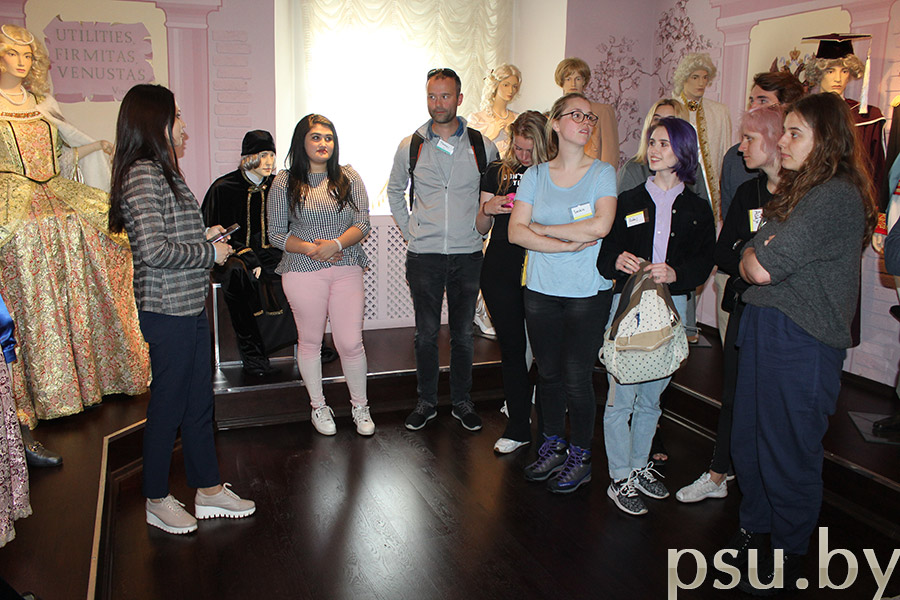
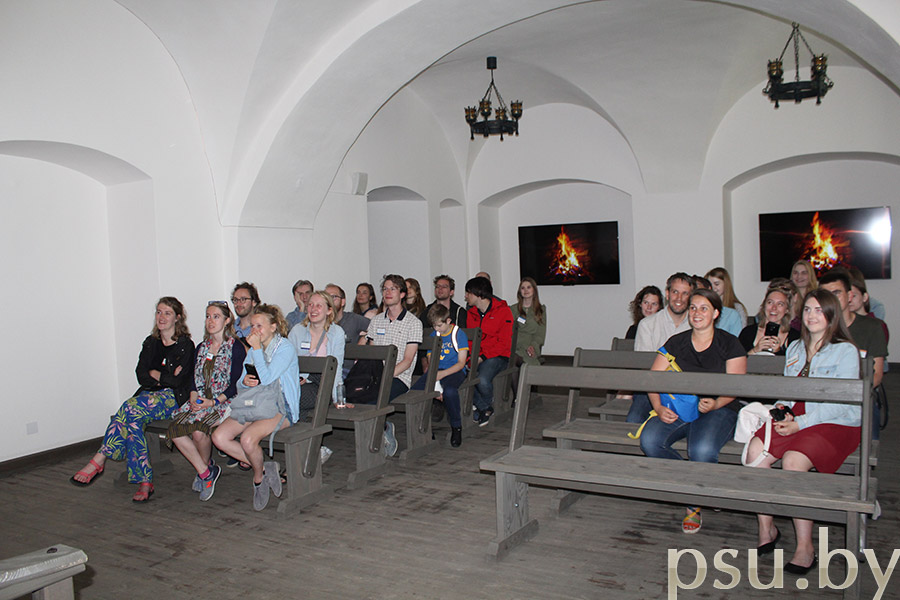
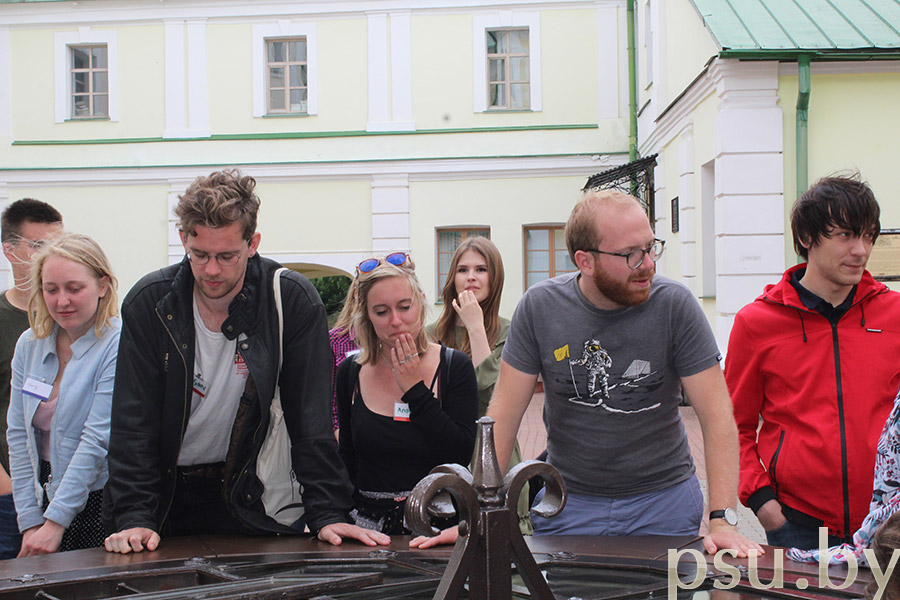
After the excursion the participants of the event had a coffee-break. Then there was one of the most complicated parts of the programme – a joint Belarusian-Dutch project and a presentation.
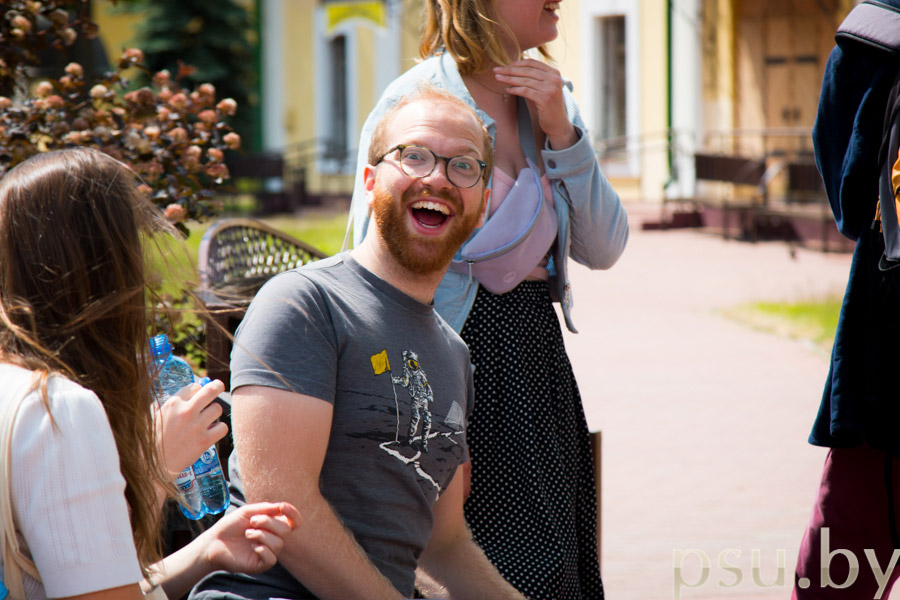
Dutch and Belarusian students brilliantly met the challenge! Everyone could get to know a lot about interesting stereotypes that characterize Belarusian and Dutch people. All the presentations were bright and humorous. Apart from that, all the teams talked about similarities and differences between our cities and universities, systems of higher education in Belarus and the Netherlands. The participants of the event expressed their hope that their next meeting should take place in Amsterdam.
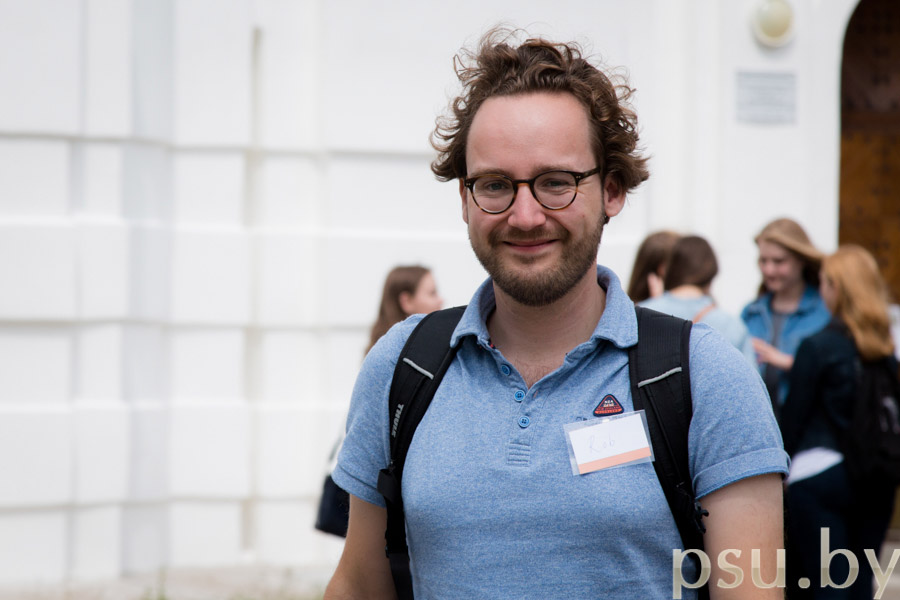

Our guests told about themselves and their visit to Polotsk, and representatives from PSU shared their impressions about this Belarusian-Dutch meeting.
Anna Teijeiro Fokkema: «I’m a student studying History at the University of Amsterdam. Annually we hold educational trips to two countries in Europe. At the beginning of the term we have lectures, for example, about Belarus and Ukraine. Then we get an opportunity to visit these countries».
Daniel Knegt: «I’m a lecture at the Department of History of the University of Amsterdam. So here I’m one of the coordinators of the trip. Polotsk is the second place during our trip. I would like to know more about your city and university. I’m very glad to be here! Once I came to Belarus. It was eight years ago, in 2010. But that time I didn’t have a chance to visit Polotsk. I was just in Vitebsk and Minsk. This time I can see more. So it will be interesting to see some changes for the past eight years».
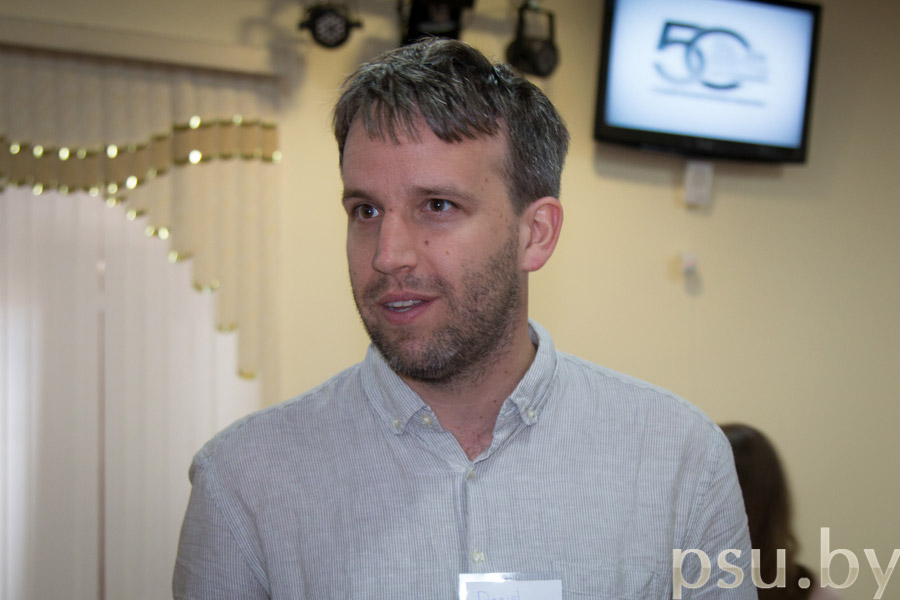
Bram Mellink: «I’m also a lecture at the University of Amsterdam and one of the coordinators of this trip. I’ve visited Belarus twice. It was eight years ago. Before coming here we’ve spend three days in Minsk. Now we are here, in Polotsk. And then we will continue our trip and finish it in Brest».
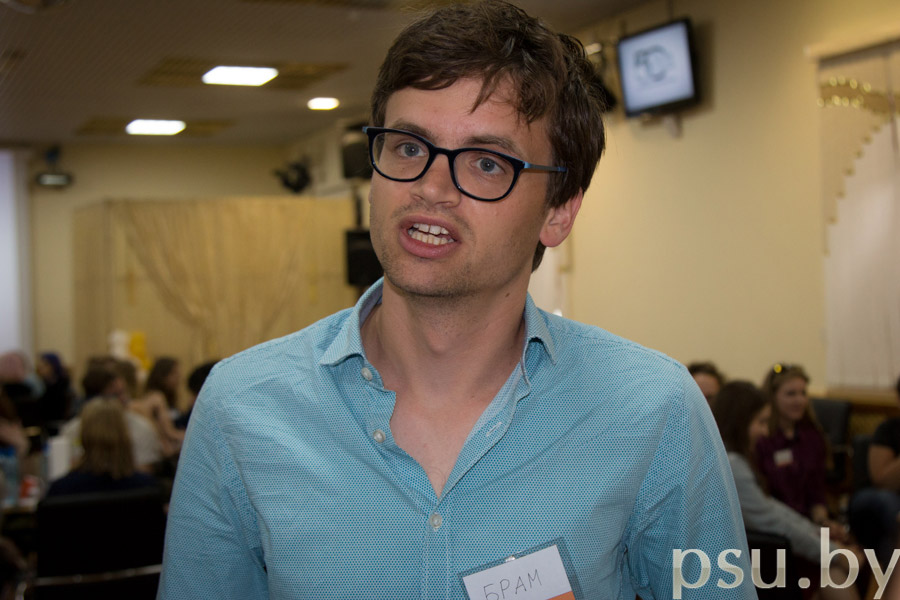
Alexander Kozlov (17-HIS): «I think that the meeting with Dutch students is not only a unique chance to develop our communicative and language skills, but also get to know about some peculiarities in history, culture, educational systems, the way of life in the Netherlands. I was glad that our colleagues were very friendly that’s why we didn’t have any language barrier. I would like to thank all the organizers of this event for such a high level of its preparation and for this opportunity to take part in it. I hope that such meetings will be traditional for our students and for the university, in general!»
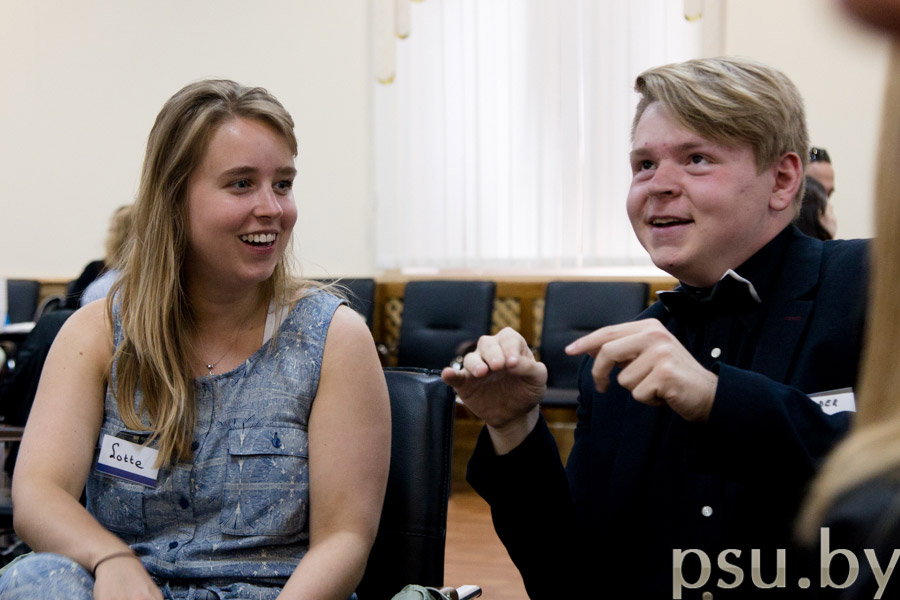
Sophia Slizhikova (14-RGP-1): «Any communication, in particular, with native speakers from different countries, representatives of other cultures and views is unique experience for self-development and, of course, it is a great source of inspiration for study and opening new horizons. Our communication with Dutch students evoked a desire to develop our English knowledge and something about different cultures.
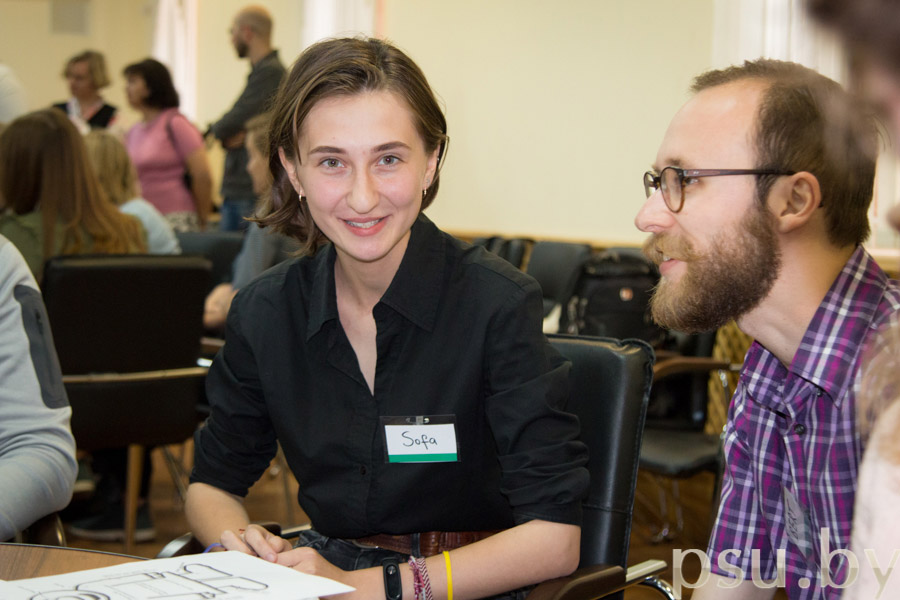
At the beginning I was a little bit nervous. English is a foreign language both for Belarusian and Dutch people. Well, probable, we had some cultural barrier. But everything was fine due to the organization of our meeting and openness of our guests. The most popular topic was the discussion of our expectations and reality. We’ve come to the conclusion that we have stereotypes to each other. In many cases they are not true. We’ve compared the life in our countries, given some pieces of advice and shared our own experience.
During the excursion around Polotsk and the university we’ve heard many kind words and compliments about this event. Dutch students expressed their wish to continue the communication with us. We shared contacts and promised to come to Amsterdam. So this is our common goal after such a great meeting of cultures and interests!»
S. Piashkun: «Belarusian-Dutch meeting at PSU is a significant event for the university and for the whole country. It is the first experience of Belarusian higher education in organizing such an event that promotes a quick acquaintance, immersion to intercultural communication and further communication between students and lecturers of two higher education establishments during our next visits.
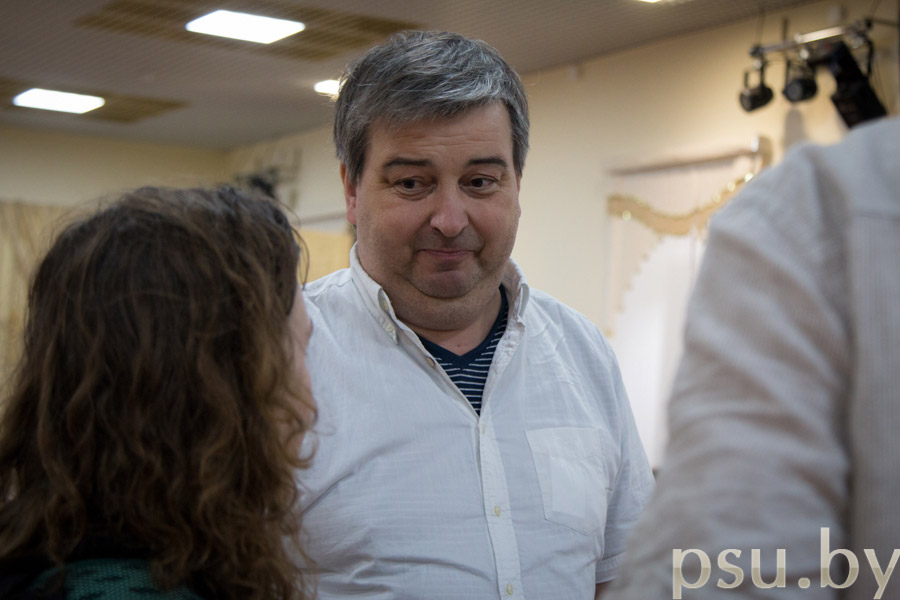
This initiative is undertaken within 50th anniversary of contemporary history of PSU aimed at intensification of internationalization of the university. This year Belarus and, in particular, PSU, hosted International Days for the first time. So both events have made a significant contribution to increasing quality of international activity of PSU.
At our university the internationalization means not only export of educational services, joint events, projects and academic mobility. It is important for us to have joint socialization between Belarusian and international students, using best practices of holding international events, applying leading interactive methods of teaching and also using internal system of quality ensuring».